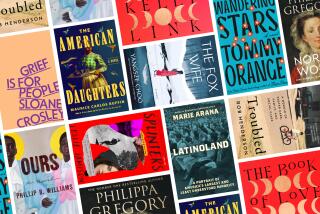Discoveries
The Dressmaker of Khair Khana
Five Sisters, One Remarkable Family, and the Woman Who Risked Everything to Keep Them Safe
Gayle Tzemach Lemmon
Harper: 288 pp., $24.99
Kamela Sediqi was not yet 20 when the Taliban took over in Kabul, Afghanistan, in 1996. When her father, a military man under former strongman Najibullah (who was killed by the Taliban), moved out of Kabul, he left Sediqi in charge of her sisters and younger brother. The Taliban issued their edicts: Women were to stay at home, they were not permitted to work, and they were forced to wear the face-covering chadri in public. In an effort to support her family and fight the boredom, Sediqi and her sisters began to sew dresses and sell them to shopkeepers.
The risk was enormous — just being on the street alone or speaking to male shopkeepers, much less selling the garments, could mean beating, imprisonment, even death. But the business grew. Soon she employed 34 women and taught sewing classes in her home. Orders poured in, some of them from the wives of Taliban leaders who remained in power until 2001’s American-led invasion. Sediqi’s business has continued to grow and she now advises female entrepreneurs. Like Greg Mortenson and David Oliver Relin’s “Three Cups of Tea,” and Tracy Kidder’s “Mountains Beyond Mountains,” Gayle Tzemach Lemmon’s “The Dressmaker of Khair Khana” is pure inspiration. Like “Reading Lolita in Tehran,” it reveals in acute detail the anxiety of ordinary people trying to fold their lives around the whims and laws of abusive regimes.
Cleaning Nabokov’s House
A Novel
Leslie Daniels
Touchstone: 336 pp., $24
Barbara Barrett is not a go-getter. She is disorganized, totally unsuited to “work the system,” any system. But she is warm, creative and loving with her two young children. When she leaves her control-freak husband, she takes the children with her, is promptly arrested for kidnapping and is denied custody. Slowly pulling her life back together, missing her children most painfully, Barbara buys a run-down house, not knowing that Vladimir Nabokov once lived there.
Rummaging through drawers, she finds an incomplete story he had written about Babe Ruth. To make money to pay the lawyers and regain custody, Barbara rents an old lodge on a nearby lake and opens a “cathouse” with male prostitutes, catering to the needs of local women at lunchtime. The Nabokov story line founders, but in Barbara, Leslie Daniels has created a character to root for.
This River
A Memoir
James Brown
Counterpoint: 224 pp., $14.95 paper
Who could blame a reader, after James Frey’s discredited “A Million Little Pieces,” for being skeptical of the pyrotechnic literature of addiction? But James Brown, who teaches in the creative writing program at Cal State San Bernardino, is not a flashy writer. What is fascinating to watch is not a spectacle of decline — he writes of addiction to alcohol, heroin, meth, prescription drugs and antidepressants — but his geologic sculpting, this wearing away of a person, memories and all, down to some pure and simple core. When Brown was a boy his mother was arrested for arson; his brother and sister committed suicide; his ex-wife died shortly after giving birth to another man’s baby.
In one of my favorite chapters, Brown writes about a Japanese student of his who has endured too many injustices in his short time in the U.S. and whose stories are filled with threats of violence. The teacher and the student are both living at the limits of their emotional endurance. Their writing becomes a containment vessel, a pressure cooker. “This River” continues where Brown’s first memoir, “The Los Angeles Diaries,” left off. It’s molten stuff, the story of his efforts to control his river of rage.
Salter Reynolds is a writer in Los Angeles.
More to Read
Sign up for our Book Club newsletter
Get the latest news, events and more from the Los Angeles Times Book Club, and help us get L.A. reading and talking.
You may occasionally receive promotional content from the Los Angeles Times.






